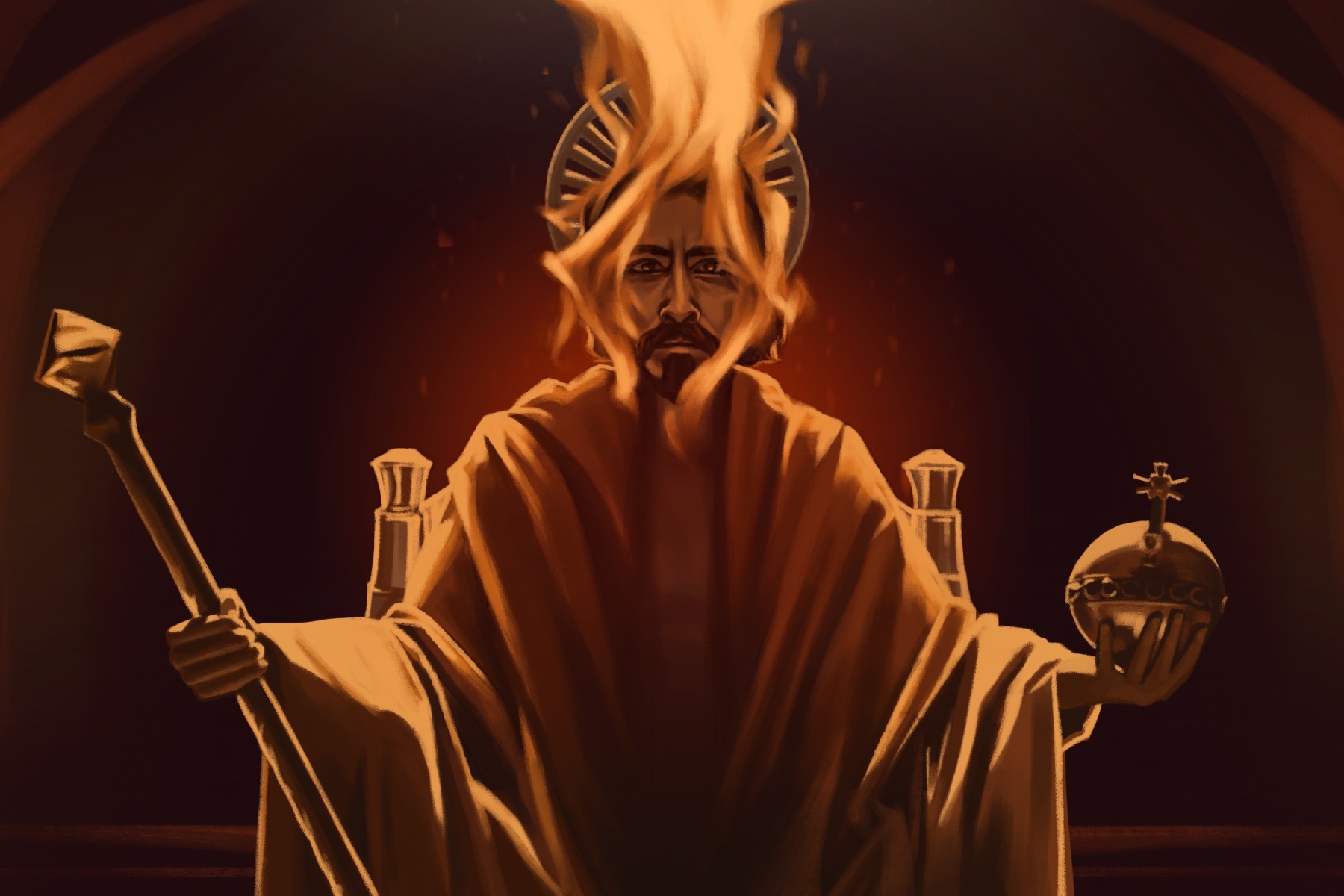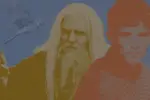David Lowery’s “The Green Knight” is one that stays with us. It has spawned a variety of conversations since its release and the discussions are far from ending. Viewers of this nontraditional adventure film are either discussing the great directing or sharing in the weight of confusion “The Green Knight” places on the shoulders of its audience. Whether the film bewilders or baffles does not hide the fact that a large majority of moviegoers did not get the message. Most are left with tilted necks and itchy heads after investing two hours of their time and attention. The truth remains that this was not a movie to fulfill your expectations or merely suspend your disbelief. This was a telling of a tale we thought we knew. And boy, did we really think.
With regards to Arthurian mythology, we instinctively think of tales of powerful sorcery and brave knights. The conventional narratives veer toward pulling swords out of stones, protecting dragon eggs from extinction, and, in some cases, fulfilling quests to appease headless monsters with terrible table manners.
To the surprise of many and the foretelling of none, “The Green Knight” relays an account of a character less renowned than King Arthur and not as poignant as Merlin. The Arthurian fantasy feature follows Sir Gawain as he embarks on a quest of knighthood. This 21st-century film adaptation of the 14th-century poem “Sir Gawain and The Green Knight” gives an unprecedented yet fitting account of its protagonist. Sir Gawain must honor the knightly virtues of chivalry: generosity, courtesy, friendship, chastity and piety, all to prove himself to the Knights of the Round Table as well as his family.
The chronicles of Sir Gawain are distinctive to say the least. All that you anticipate is bound to be devoured by equivocal modifications. If you’re looking forward to Excalibur escaping its rocky confinement, be prepared for an axe the size of a horse decapitating a tree man. The Knights of the Round Table are not their typical garrulous selves. The wise dragons and petulant goblins are substituted by fox companions and gigantic guides. The lore presents itself as familiar. Then ungraspable. Before vividness settles within the viewer and entices them into experiencing the narrative anew as a once-told tale at the core of an untold one.
Simply put, it is a story within a story. Completely detached from its holistic cradle yet pertaining to a lasting legend of honor, nobility and knighthood. Although that does not clarify much, it does offer a shift in perspective. This redirected point of view leaves us with an understanding of how little we need to know before delving into a narrative like this one. The layers upon layers of details given are ours to digest and make sense of. Regardless of the multiple trailers and “everything you need to know” videos describing each shot and scene of the film, one cannot be fully prepared for the ambush of ambiguity about to befall them. This isn’t a test you can pass before taking. This isn’t a test at all. At least not for us.
Moreover, failure functions as a consistent theme in “The Green Knight.” Sir Gawain’s failure to attain the five codes of knighthood and chivalry on his quest seamlessly threads the story together. What makes this more blatant is Sir Gawain’s obliviousness to his failures. He quite frankly fails in constant succession. Test after test after test.
In the earlier days of his journey, he encounters a scavenger who provides him with directions but Sir Gawain offers him inadequate payment in return. In this way, he fails to honor the virtue of generosity. Not long after, he demonstrates a lack of courtesy by literally pulling a Goldilocks and falling asleep in a stranger’s bed. He does not fulfill the virtue of friendship as he wards off the fox that had guided him on the majority of his quest. Sir Gawain’s inability to resist temptation renders him vulnerable to the seduction of the lady of the manor — thus, guaranteeing his failure at observing chastity. The final virtue of piety is a waste on this man. Sir Gawain is self-serving and neglects religious obligations. He is the embodiment of everything a knight should not be but still receives absolution from his dishonorable fate of cowardice. Although he didn’t succeed, his failure was not isolated.
Audiences are often quick to point fingers of baseless blame at the intricacies of storytelling to mask their inability to grasp a story. They would rather do this than admit to their lack of willingness to explore those intricacies. Because of misconceived notions and a failure to use the room meant for interpretation, enthralling stories like “The Green Knight” receive erroneous criticism. What’s worse are the instances of both false and forced grasping of the film’s concepts. People place metaphors where they don’t belong and ignore the ones that do matter.
Just don’t talk about “The Green Knight” if you didn’t have a clue what was going on. You can do your research before, after and in some cases, during the movie but it won’t change what’s true — that we, as viewers of “The Green Knight,” are as big a failure as Sir Gawain, if not bigger. This relates to our reluctance to see a would-be familiar tale as anything but. We can handle what we already know but not what we’re yet to in the face of uncertainty. So, we either overanalyze or disregard, failing to strike a balance.











